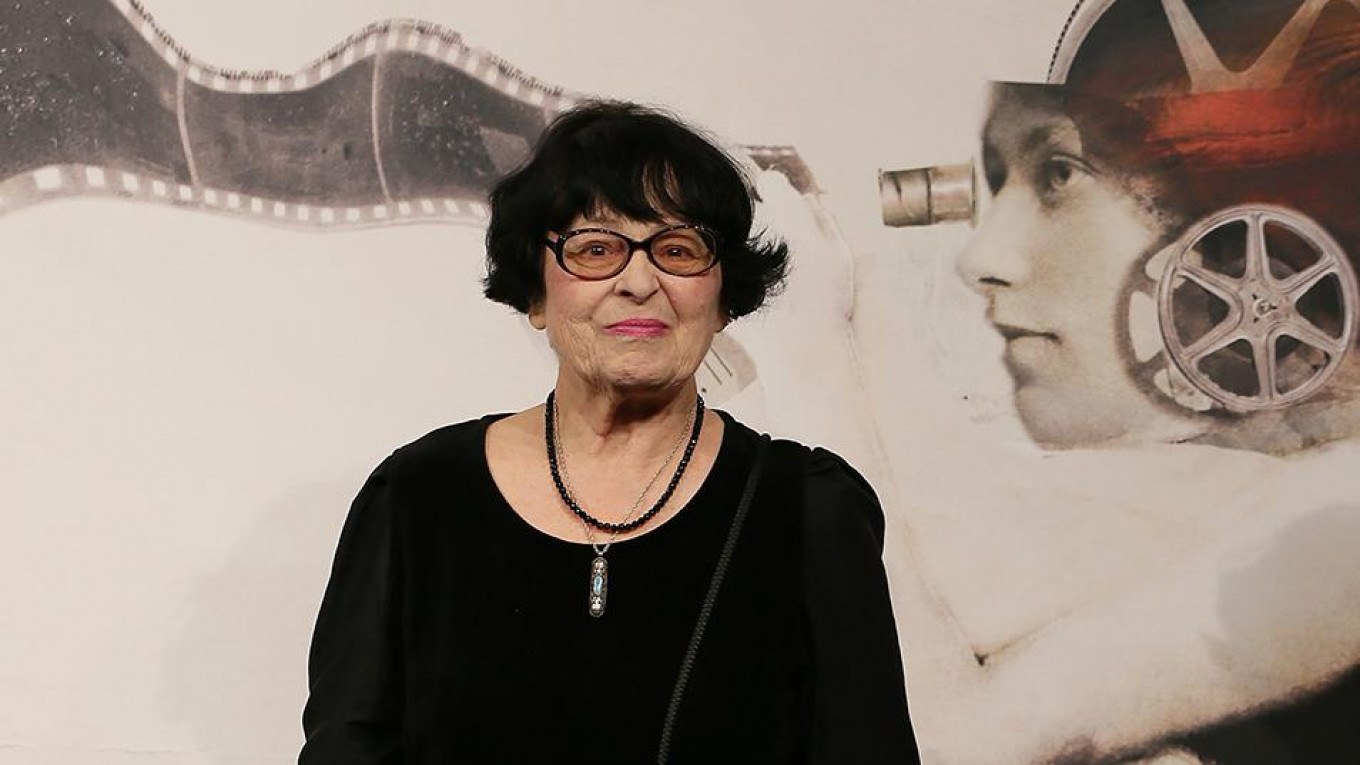On Wednesday the celebrated film director Kira Muratova died at the age of 83 in Odessa, Ukraine.
Born in Soroco, Romania (now Moldova), she spent part of her childhood in Bucharest. She graduated from the prestigious Gerasimov Institute of Cinematography in Moscow in 1959 and began to work in Odessa, where she directed several films, including “Brief Encounters” starring Vladimir Vysotsky, and “The Long Farewell.” Both films were “put on the shelf” for decades for their unacceptable depiction of Soviet life and relationships.
In 1978 she moved to Leningrad (now St. Petersburg) and directed one film at the Lenfilm Studio, “Getting to Know the Big Wide World,” and then returned to Odessa, where she continued to work until her last film, “Eternal Redemption,” in 2012.
Muratova only became known to the broader public in the late 1980s, when her earlier films were released and she was able to work without censorship. Her later films, particularly “Asthenic Syndrome” (1989), are considered masterpieces. “Asthenic Syndrome” consists of two narratives: one story in black and white about a doctor grieving over the loss of her husband. This story turns out to be a film being shown in a movie theater in the second narrative, which is filmed in color, about a schoolteacher with asthenic syndrome who constantly falls asleep. The doctor is furious and aggressive in her grief and pain; the schoolteacher is passive and falls asleep whenever he is uncomfortable. The brilliant but unflinching view of human and society’s cruelty and the neo-avant-garde style of narration garnered the Special Jury Prize at the Berlin Film Festival.
Muratova won dozens of awards for her films in Russia, Ukraine and abroad.
A Message from The Moscow Times:
Dear readers,
We are facing unprecedented challenges. Russia's Prosecutor General's Office has designated The Moscow Times as an "undesirable" organization, criminalizing our work and putting our staff at risk of prosecution. This follows our earlier unjust labeling as a "foreign agent."
These actions are direct attempts to silence independent journalism in Russia. The authorities claim our work "discredits the decisions of the Russian leadership." We see things differently: we strive to provide accurate, unbiased reporting on Russia.
We, the journalists of The Moscow Times, refuse to be silenced. But to continue our work, we need your help.
Your support, no matter how small, makes a world of difference. If you can, please support us monthly starting from just $2. It's quick to set up, and every contribution makes a significant impact.
By supporting The Moscow Times, you're defending open, independent journalism in the face of repression. Thank you for standing with us.
Remind me later.






